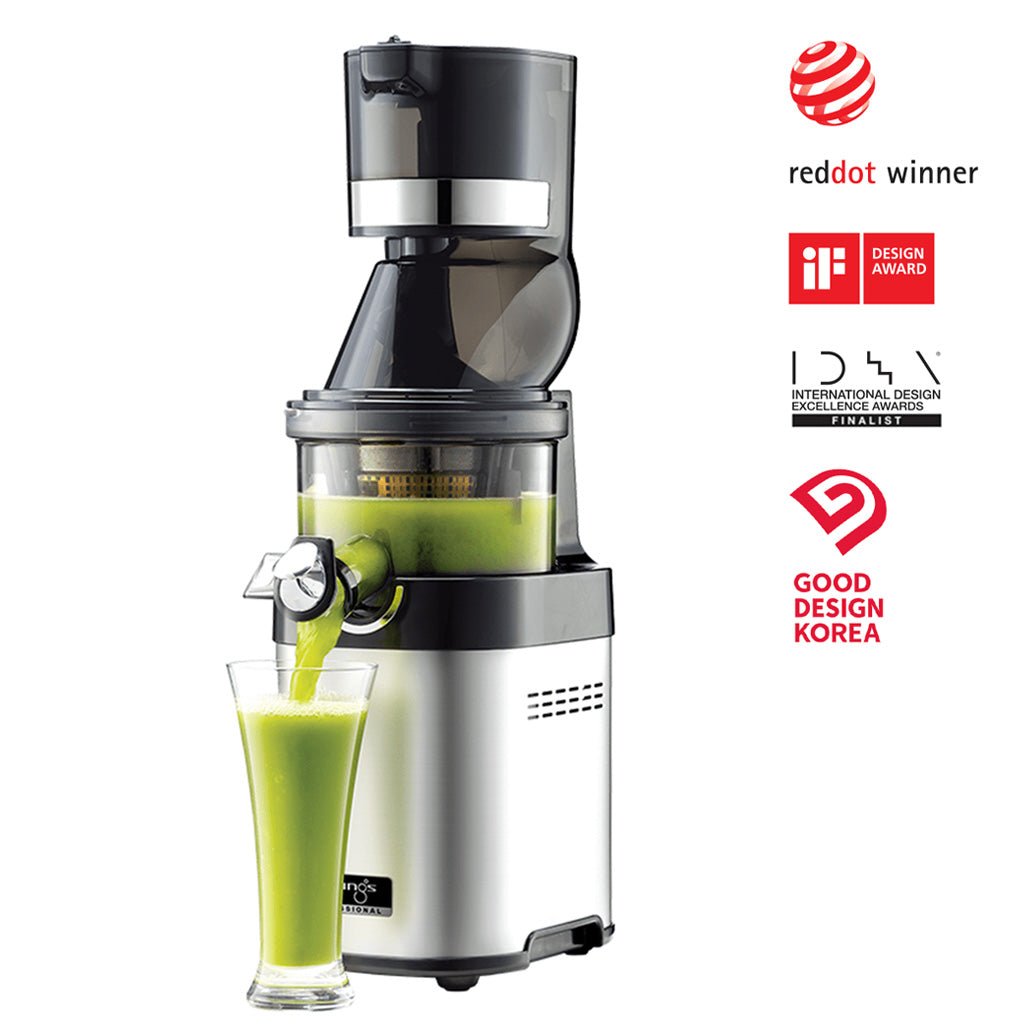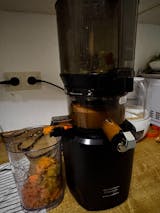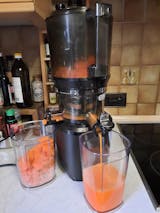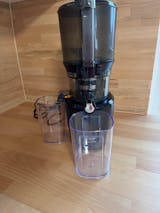Juicing for a healthy lifestyle: 6 habits
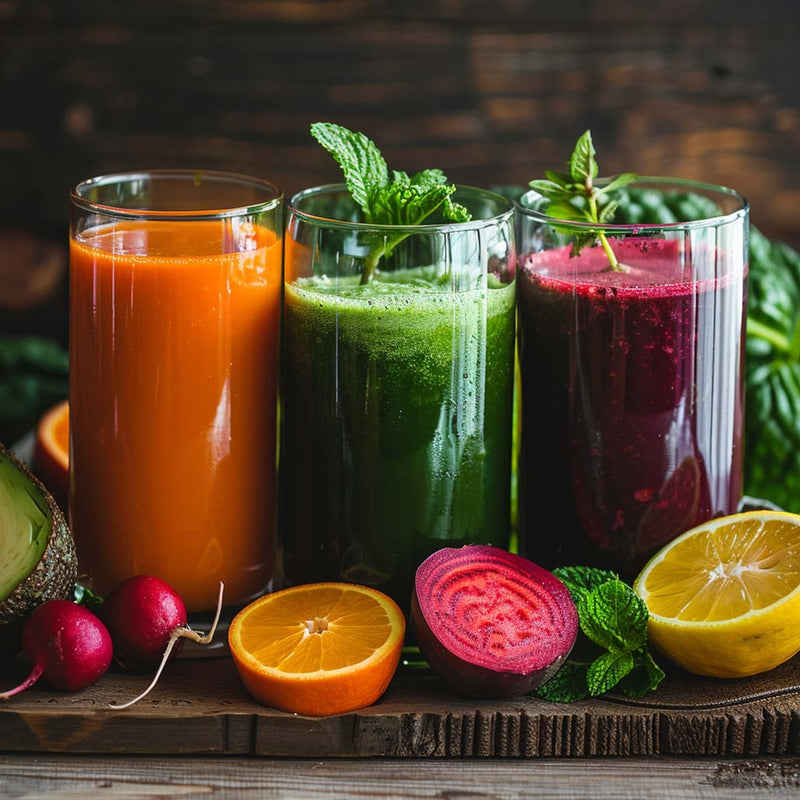
Juicing is an effective strategy for improving your well-being because it allows you to consume more nutrient-rich fruits and vegetables. The following juicing-related habits can significantly contribute to a healthier lifestyle.
1. Prioritize hydration
2. Start batch juicing
3. Choose healthier alternatives
4. Juice more vegetables
5. Store your juice properly
6. Keep your juicer clean
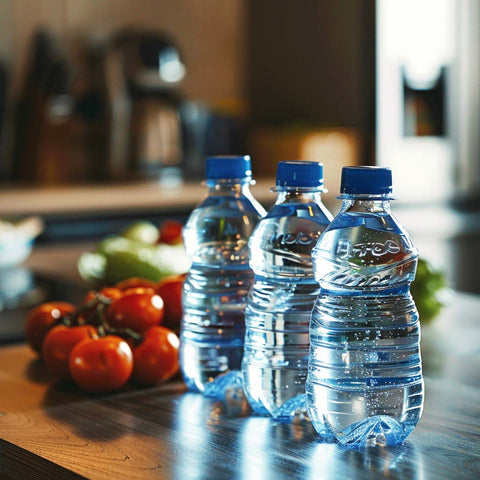
1. Prioritize hydration
Boost your well-being by prioritizing hydration in your daily routine. Proper hydration regulates body temperature, lubricates joints, prevents infection, supports organ function, and facilitates waste elimination. Drinking juice can be a beneficial strategy for maintaining hydration, especially for people who don't like plain water. While juice won't completely replace water in your diet, it's a flavorful and appealing alternative that supports hydration. Juice water-rich ingredients and add spring or coconut water to your juice. You can also freeze your juice in ice cubes and drink it with water. Hydrating through these methods can contribute to a more vibrant and health-conscious lifestyle.
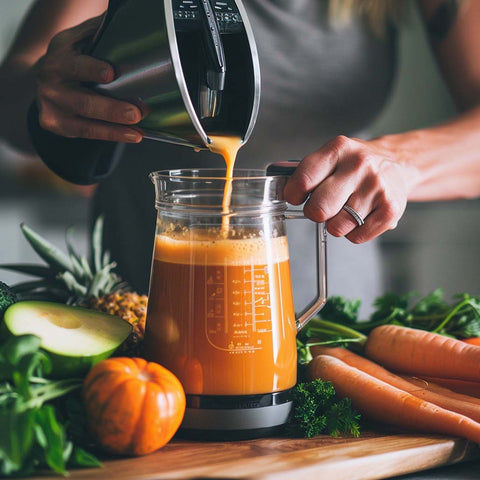
2. Start batch juicing
Regular juicing can increase your nutrient intake, aid digestion, boost your immune system, and provide many other health benefits. However, making time to juice daily can be challenging.
An effective solution is batch juicing, where you prepare larger batches of juice several days in advance. This way, you don't have to juice every day, but you can still enjoy fresh juice regularly. This approach can help establish a consistent and stress-free juicing routine.
For those looking for a convenient way to incorporate juicing into their daily routine, our hands-free slow juicer AUTO10S could be the solution. With this device, you can add whole fruits and vegetables, start the juicer, and move on to other tasks. The AUTO10S is designed to simplify the juicing process, helping you save time while maintaining a regular juicing routine.
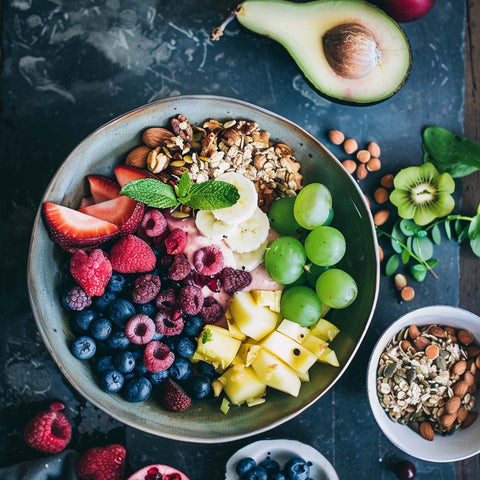
3. Choose healthier alternatives
Choosing healthier alternatives in your diet allows you to maintain the enjoyment of foods and beverages while minimizing concerns about their impact on your health. Instead of milkshakes, ice cream, and cow's milk, you can opt for smoothies, sorbets, and plant-based milks. These alternatives have the advantage of being lower in calories, fat, sugar, and carbohydrates, making them suitable for people with lactose intolerance or those who prefer a dairy-free diet.
For a social gathering without the alcohol, mocktails or non-alcoholic drinks are a tasty alternative to traditional cocktails. What's especially practical is that mocktails are easy to prepare with a juicer, since their main ingredient is juice.
Our versatile juicers make the transition to a healthier lifestyle even easier. Thanks to special strainers, you can effortlessly make not only juices, but also smoothies, sorbets, and plant-based milks!
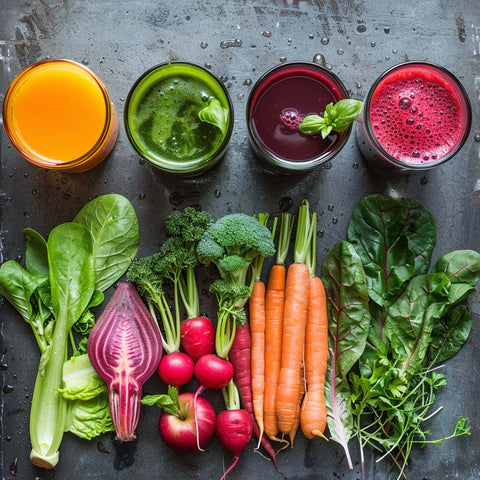
4. Juice more vegetables
Although fruits and vegetables are essential components of a healthy diet, many people tend to overeat fruit and undereat vegetables. Juicing vegetables offers a convenient solution to increase your intake of essential nutrients and soluble fiber without having to eat large amounts of leafy greens.
We recommend focusing on vegetable-rich juices and adding fruit only as needed for flavor enhancement. By juicing vegetables like carrots, celery, beets, spinach, and kale, you can easily increase your intake of vitamins, minerals, and other important nutrients that help support overall health.

5. Store your juice properly
A healthy diet benefits significantly from the intake of essential nutrients, which are abundant in freshly squeezed juices. The key to preserving these valuable nutrients lies in proper juice storage.
Here are some best practices:
Ideal storage containers: Glass bottles, mason jars, and stainless steel bottles are the containers of choice. They effectively protect the juice from light and air, two factors that can impair its quality.
Shelf life and storage conditions:
The juice can be stored for up to 2 hours at room temperature . This limited time window results from the rapid loss of nutrients and bacterial growth at room temperature.
The juice will stay fresh for up to 3 days in the refrigerator . Refrigeration slows oxidation and bacterial growth.
When frozen, the shelf life is extended to up to 3 months . Use ice cube trays or bottles for this method, and leave room for the liquid to expand to avoid container breakage.
Vacuum sealing to prevent oxidation : Some people also choose to vacuum seal their juices to further limit oxidation. Avoid filling containers to the brim to prevent liquid from being sucked into the vacuum sealer.
Pay attention to quality: Do not exceed the recommended storage times to prevent the formation of spoiled juice. Regularly monitor the taste, color, and odor of your juice to ensure it remains fresh and edible.
6. Keep your juicer clean
Cleanliness is essential for a healthy lifestyle when it comes to kitchen appliances. By keeping your kitchen appliances clean, you prevent bacteria, viruses, and allergens from getting into your food and potentially endangering your health.
It's especially important to clean your juicer immediately after use. Don't leave it dirty in the sink. Remaining pulp can harden and impair the efficiency of your appliance.
By cleaning regularly and thoroughly, you not only protect your health but also ensure that your juicer always functions optimally.





![[ The New York Times ] Kuvings Entsafter - Eine Investition in die Gesundheit - Kuvings Deutschland](http://kuvings.de/cdn/shop/articles/the-new-york-times-kuvings-entsafter-eine-investition-in-die-gesundheit-5051352.jpg?v=1763482421&width=1080)
![[ Kuvings ausgezeichnet ] Präsidentenauszeichnung für regionale Innovation in Südkorea - Kuvings Deutschland](http://kuvings.de/cdn/shop/articles/kuvings-ausgezeichnet-prasidentenauszeichnung-fur-regionale-innovation-in-sudkorea-1602687.jpg?v=1762447229&width=1080)



